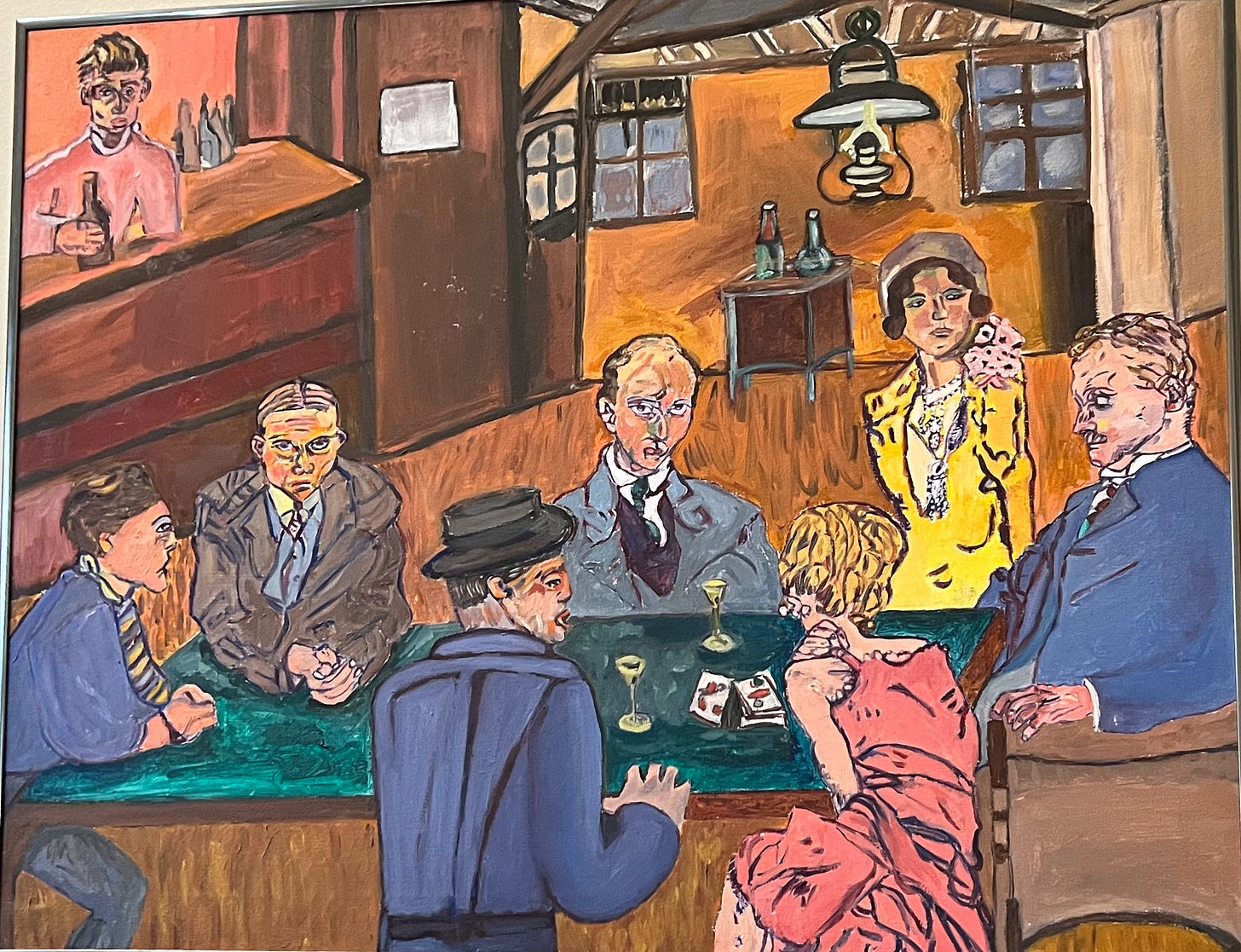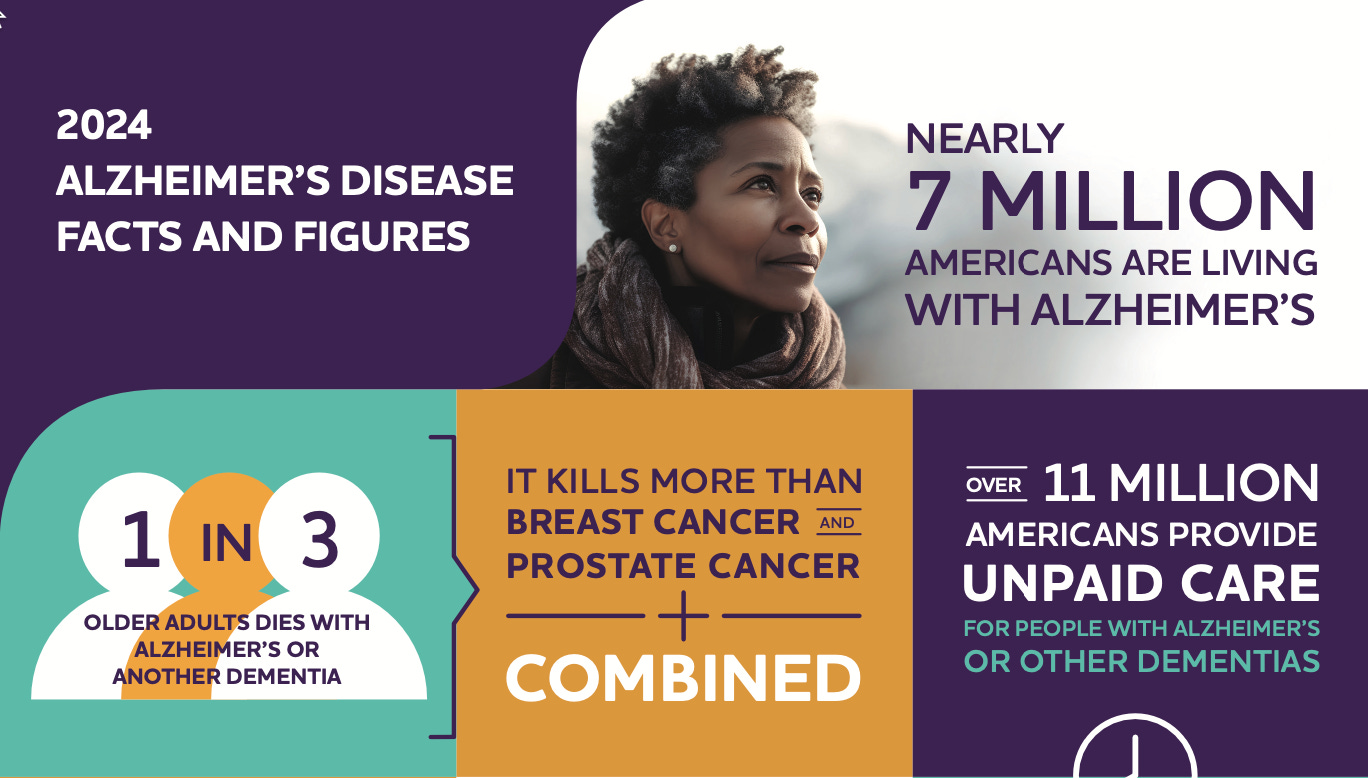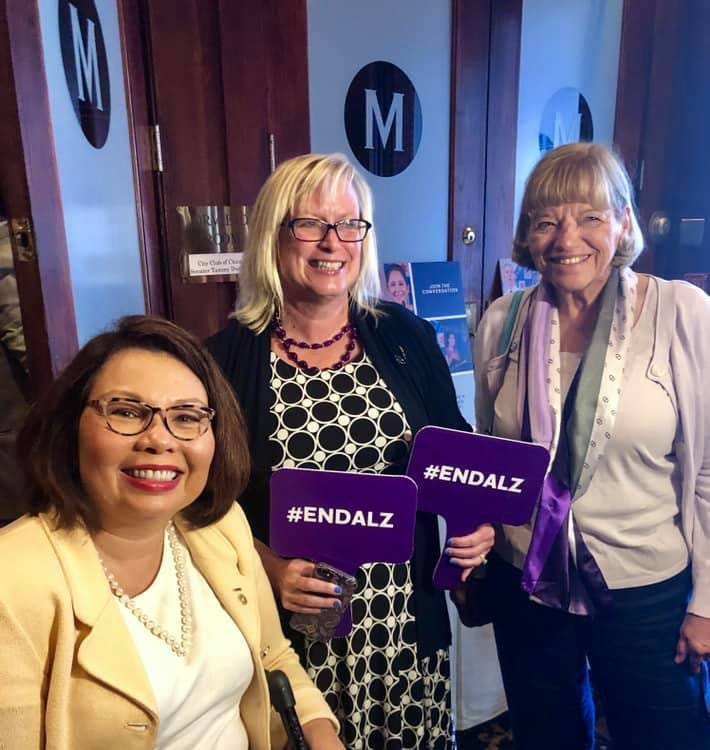The Insidious Invisibility of Alzheimer's and Its Caregiver Role
Sharing my lessons and red flags from my 14-year experience with Alzheimer's and caregiving

My mother apparently had quite a sweet tooth, which I never knew until she had Alzheimer’s*. I would take her out to eat at a restaurant and next thing I knew, I would see her pouring a bowl of those candies on the reception desk into her purse. It was like dealing with a child in an adult body.
To look at her, no one would know of any illness. To watch her barrel through the candies in the dish, well, that would be another story. But most people didn’t see that.
Pants and Another Pair of Pants
Mom’s social skills were the last to go. She could go to a party and skate by with no one being the wiser that, earlier that summer day, she dressed herself in wool pants and put another pair of pants on as a shirt and a sweater on top of that. After Dad sending her back, and a few more attempts, he had to redirect her misdirected wardrobe attempts and pull out some more appropriate clothes for the day.
The invisibility of the disease did a huge disservice to my mom’s overall health and to our ability to help her through it as a family.
What Did You Just Say
We could not get a diagnosis out of the doctor. I was baffled. Clearly, she had an issue. She could not remember the conversation we had just had. Her brother died from Alzheimer’s at the age of 59. She had all the symptoms. What was wrong with her neurologist that he would not make the diagnosis?
To pour salt on this non-diagnosed wound, the same doctor prescribed her, what at the time (it was approximately the year 2005), was the best thing for dementia —- there were medications that masked the symptoms. They did not slow the disease down, but they would let the patient live without the symptoms longer.
My mom knew what was happening… at first
I was the most vocal one in the family about the fact that Mom had all the signs of early dementia and her doctors were doing nothing about it. My other family members were split between no way, maybe and maybe.
Mom herself? She was in complete denial. By design. She knew her brother had died from it. And she knew that the longer it took for her to believe it, the longer it would take for her brain and body to fully surrender to the disease.
Early enough in the disease, this is possible. And once mom had heard that you can play a mind over matter kind of thing with Alzheimer’s, she was sold. She decided what could it hurt to try it.
How do I know she was intentionally doing this? She told me. It was the only time I knew that she knew she was getting Alzheimer’s. This one conversation. Then it was like she took a piece of paper with the info on it, crumpled it up and swallowed it. Never to be seen or recognized again.
Unfortunately, Alzheimer’s is a powerful disease when truly present, and no mind activity will win in the end. In the short term, she bought herself the peace of mind of not being so aware of what was happening to her brain as the disease slowly started to infiltrate. Until she no longer could. She did grant herself some sanity for a little bit longer.
We were a family unit divided on the best care plan for mom. But we didn’t even know to call it a care plan, especially because there was no diagnosis.
We would debate about what to do with Mom. Are these issues because she is drinking too much? Should she not be driving? How do we know this is really Alzheimer’s? The doctor is not confirming this.
The Alzheimer’s Grip is Firm
She was unable to do anything of substance during the day. She had a paperback book she was “reading”. She would open it up in the middle, somewhere, to feign reading the book. One day, we caught her holding the book upside-down and pretending to read it. When we called her out, she just laughed and moved on.
She couldn’t tell anyone what was going on in the book. She could not follow a TV show, but with those social skills, she would act like she could.
Mom had started painting in her 50s, which is what I have done as well. Mom’s paintings, however, are phenomenal. She was in art shows in the Kansas City area and took classes (and graduated from) the Kansas City Art Institute. I’m including some of her paintings in this article so you can form your own opinion and don’t have to take it from me.
Once she took a turn, to this invisible condition that we could not get diagnosed, she could no longer paint either. She would spend hours in her basement-turned art studio with no results.
My mom’s memory was like a mudslide during a storm…
It was very sad to watch the decline and to know what was happening to her. She was slowly losing herself and I was slowly losing my mom. At a certain point, I could no longer have those mom conversations with her —- those conversations that you can’t have with anyone but your mom.
It was a very slow goodbye. I did not realize that it was a time to grieve, but it was essentially like watching the death process over a very long 14 years. And still 5 years in, 8 years in, 10 years in, no diagnosis. Clearly, he wasn’t going to do it.
The early, slow deterioration process was completely invisible. You had to be in the know about what was going on to truly understand it and the grave nature of what was happening.
People watching from the outside cannot see it. Another dangerous situation that starts to breed at this time is the role of the caregiver. Outsiders cannot see where the caregiver has to start catching the plates before they drop.
When the caregiver gets so good at this, it’s even harder for those watching from the sidelines to truly understand the issues the family unit is dealing with.
The Caregiver Doesn’t Even Realize…
that Caregiver is a name for what they are doing.
Dad was a phenomenal plate catcher. It’s like they conspired together to make it harder for others to see what was going on. It was invisible to onlookers, until it wasn’t. Dad felt there was a stigma associated with Alzheimer’s — plus he was completely against bringing anyone in to help out in the house. They would cover it on their own.
Dad had not seen the research yet. I don’t know that any research had even been published yet (approximately 2005ish). Caregivers suffer just as much as Alzheimer’s patients when they don’t tend to their own health during the caregiving process.

At some point, we realized Mom could not stay at home any longer. She became a danger to my Dad and herself. She would leave the stove on, walk around the house and forget about it. She would walk out of the house to the large park two doors down. She was wandering. She was a flight risk.
My dad, while mentally sharp as a tack,
was physically going through a few health issues, which made it hard to keep an eye on Mom. Mom would wander all over the larger house, built for raising a family. The last thing they had time for was coming up with a plan to move out of the house, which would mean going through three generations of stuff left behind by those who had moved on (myself included) and figuring out where they would move to.
I tried to help my dad come up with a plan. In the short term, we found an adult daycare for Mom. She needed something to keep her occupied during the day, to keep her out of trouble and to give my dad a break.
The following year, Dad agreed it was time to move Mom into a memory care unit. She was too much for him to handle at home. She adapted pretty well, making friends — still had the social game going.
Thelma and Louise Make a Run For It
She was known around the unit, with her buddy, as Thelma and Louise, who were looking to break out. It was always a good time to talk about because they would forget about it as quickly as they had their plans.
Apparently breaking out was a popular theme in the unit. My greatest moment of personal pride was when a suave and debonair gentleman in his 70s came up to me and on the side says, How about you and I take the wheels and get outta here? Never mind that he said that to every female he was able to talk to. I only found this out later.
Giving Back in Order to Not Give In
As the Alzheimer’s Disease progressed in my mother, and I learned more about it, I felt an inner desire to take more action. I got involved with volunteering with the Alzheimer’s Association. Today, there are two primary areas I volunteer with them:
For the last nine-ish years (pandemic years notwithstanding and throwing off easy counts), I’ve gone to Washington, DC each year to meet with our Illinois legislators and to ask them to sign on with the Alzheimer’s Association’s bills and requests, if pre-bill status. I also “lobby” locally as needed.

Here, Cheryl McNamara and I practically stalked Senator Tammy Duckworth to get this photo with her. The Illinois senator has been a wonderful supporter of all things Alzheimer’s over the years. Photo credit: provided by author. And I’ve gotten so good at it that recently, when I randomly ran into a local congressman at Panera on a regular-ole Saturday, I was able to be another reminder to him about the Alzheimer’s Association and the work we need him to do in DC.
I also give my time to the Alzheimer’s Association’s largest fundraiser, the Walk to End Alzheimer’s. I’ve served on the planning committee for 4 years now and have been a team captain for over 10 years.

The Naperville / Dupage County Walk to End Alzheimer’s, the 2nd largest Walk in Illinois, treks through beautiful, historic downtown Naperville. This was our Walk Team in 2018 when we were fortunate to have an equally beautiful day outside, enjoyed by the dog and people team members alike. Photo credit: provided by author.
These things I do because there was absolutely nothing I could do to stop my mom’s Alzheimer’s Disease. But what I can do is take steps towards the possibility of finding a cure. There is currently no cure for this leading cause of death.
The short version of our story is that Dad died 5.5 years before Mom and I blame Alzheimer’s for his death. His body was so worn down from the day-to-day toll of the disease that when he got an infection, his body could no longer fight it.
The disease gets more visible over time. Mom continued to deteriorate slowly over the next 5.5 years with some of the best care we could find for her last 3-4 years. (Shout out to Care Haven Homes in Kansas City.)
Sign up now to receive future newsletters directly in your inbox. Be sure to sign up for a free subscription now. Or upgrade to paid for more reader benefits.
*The Alzheimer’s Association puts all dementias under the same umbrella as Alzheimer’s. I use the terms dementia and Alzheimer’s interchangeably.




